Platform
User Management
- Launched the ability for SSO administrators to configure role mappings to allow for dynamic role configuration (authorization) for each individual user on login. When an SSO user logs in, the system will map their FoodLogiQ roles and location access based on the groups from their identity provider and the configuring role mappings. This process allows for greater customer control of identity and access to FoodLogiQ features.
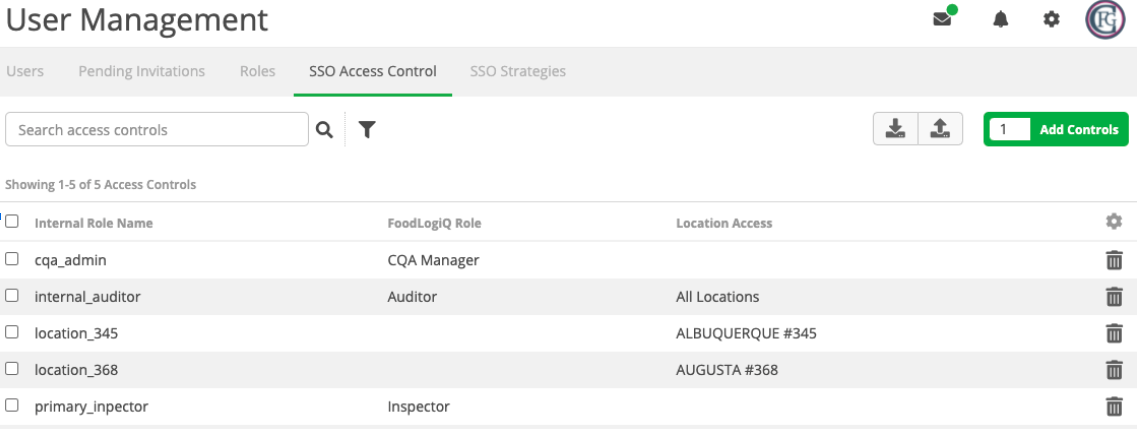
Supplier Management
- Updated automated notifications to no longer send to suppliers whose memberships have been deleted, even if the reminders are still active.
Locations and Products
- Improved the icons in use on the locations and products list pages to indicate when a supplier has made changes to an item (orange asterisk) or deleted the item (red asterisk). Users can filter for these items by using the new Has Pending Changes or Has Pending Delete filters.

Manage + Monitor
Links
- Expanded link functionality to products, locations, and incidents. Users will be able to link two items they see together, giving an easy way to denote a relationship and navigate between two FoodLogiQ items. Links for products, locations, or incidents can also be linked to items added in the Spring 2021 Release (audits and documents). Link permissions are based on the underlying permissions for the items that are being linked; if you can view an item you can view its links, while if you can edit an item you will be able to edit its links.
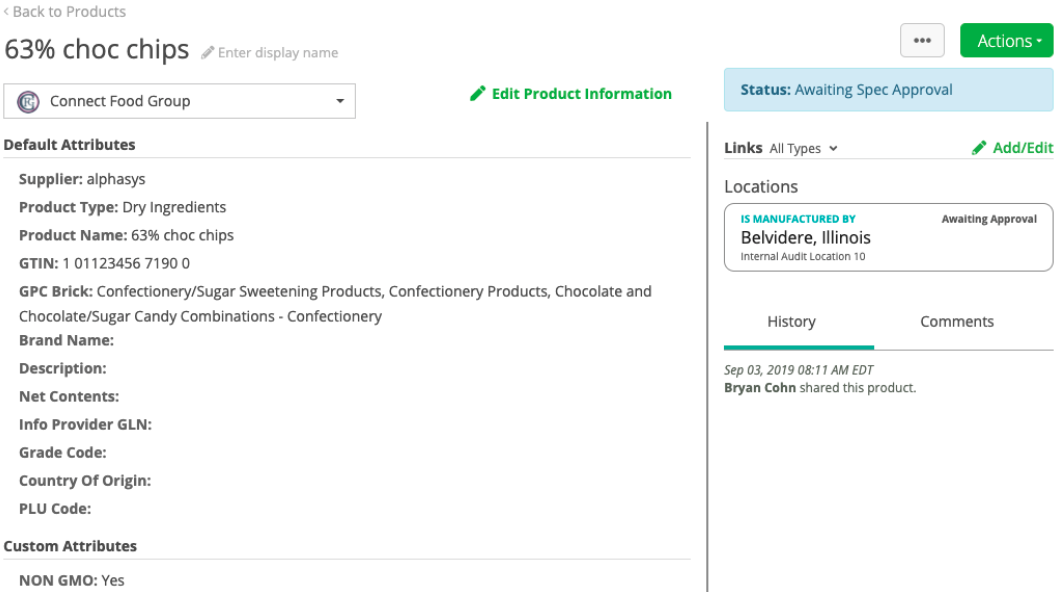
Audits and Assessments
- Updated audit and assessment templates to allow an administrator to choose whether to allow incidents and/or CAPAs on each template.
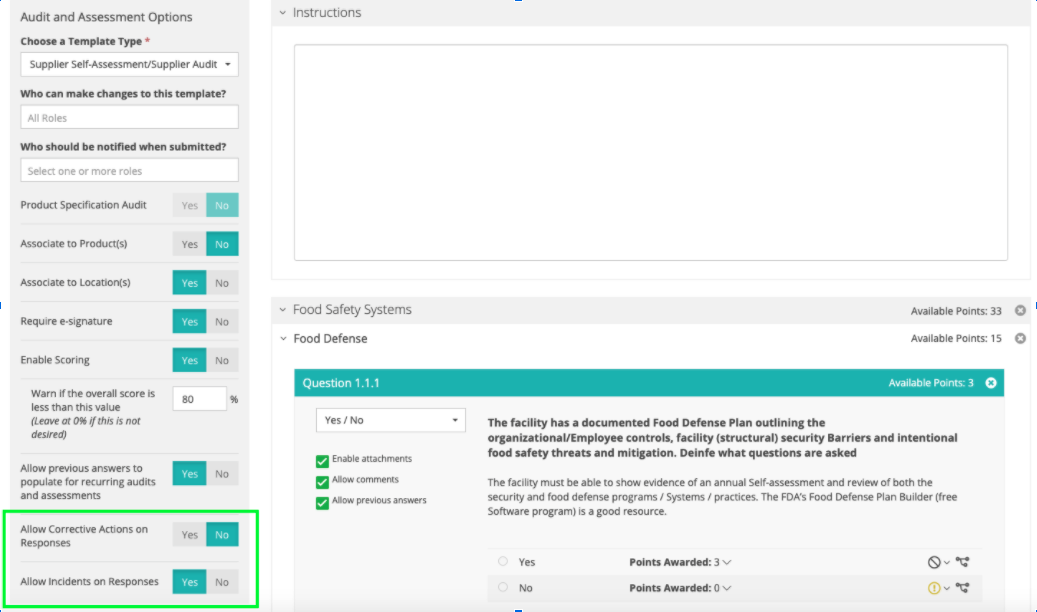
- When using audit or assessment templates with incidents enabled, users will be able to launch an incident directly from the audit, creating a reciprocal link between the two objects that is visible both from the audit and incident.
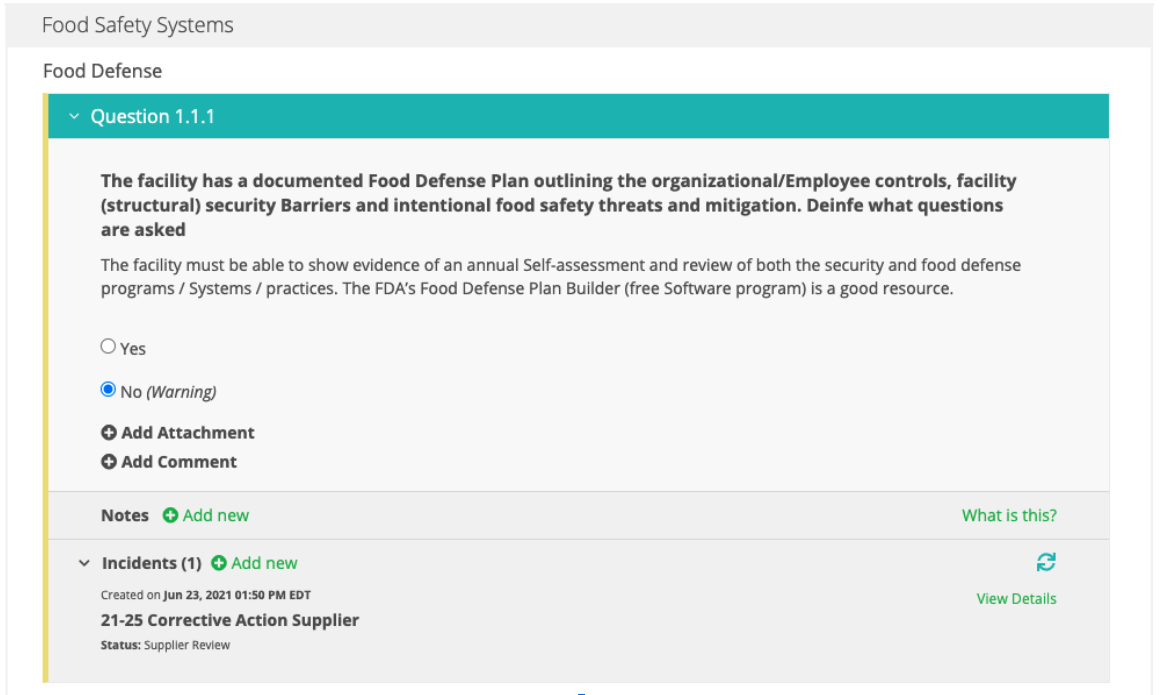
- Added rich text support to the notes field on individual audit questions.
Incidents
- Improved the incident details layout to facilitate the addition of links to the incident view. Minor stylistic changes were also made to increase the legibility of the incident form.
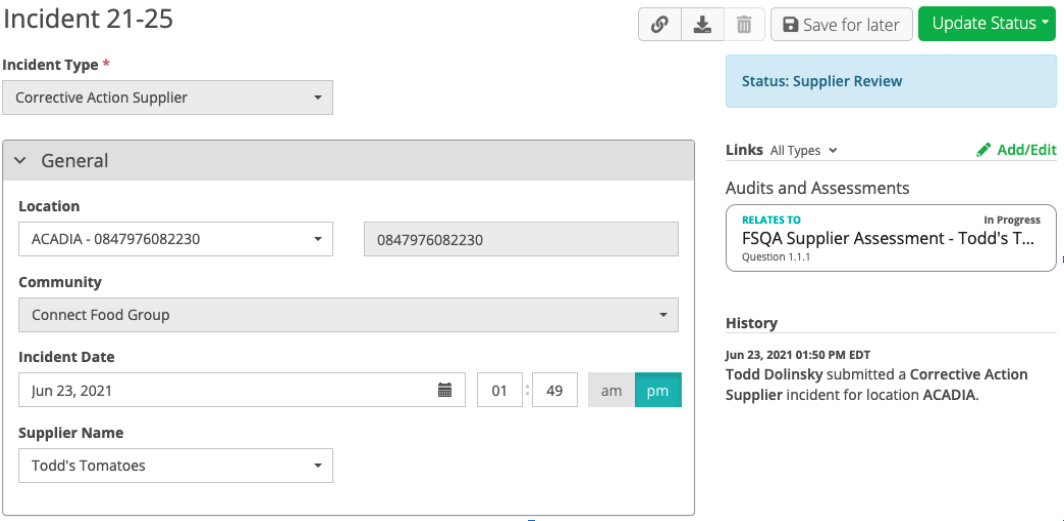
- For incident administrators, introduced new flexibility when configuring incident notifications. Users can now be notified based on the value of an attribute on the incident itself. Valid fields for configuration are custom selection lists, boolean attributes (yes/no), or a product type attribute. This functionality allows for more dynamic incident routing, eliminating the need to manually route incidents to specific people when certain conditions occur - for instance, letting produce managers know about an incident when it involves a “produce” product type or notifying members of the legal team if and only if specific conditions occur.
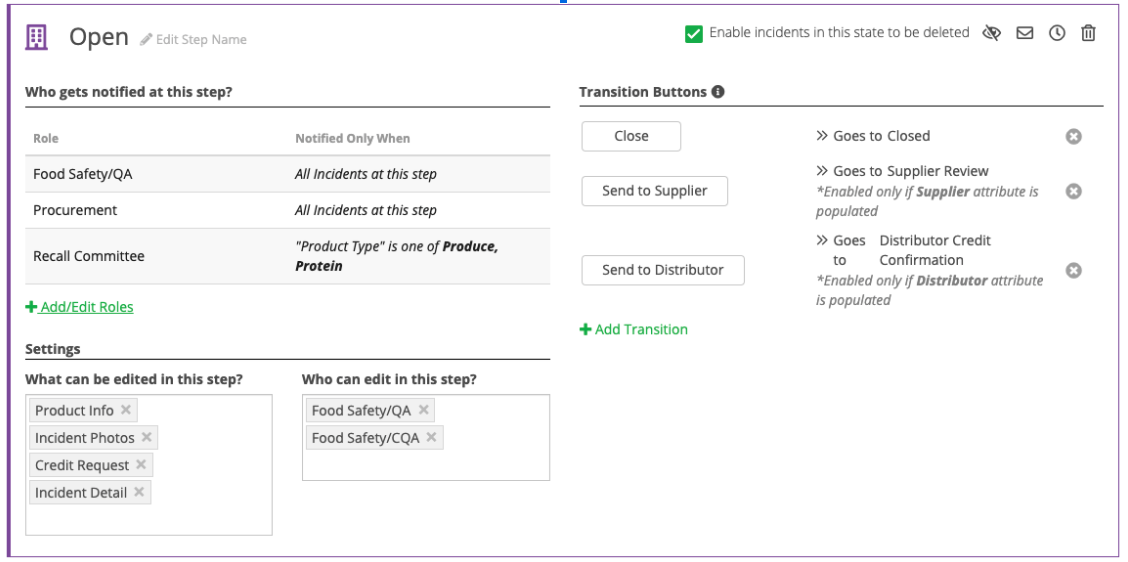
- For incident administrators, updated the logic for determining whether an incident type can have a supplier step to look at if the incident has a supplier location field. Previously this functionality only examined if the incident had a supplier attribute to make this determination.
- When an incident is cloned, a link will automatically be created between the original and newly available incident.
Documents
- Added several new audit schemes (NSF Supplier Assurance Audit, NSF Beverage Quality, SQF Code 9th Edition) and certification bodies (IRAM, Validus) to third-party audits within documents.
Track + Trace
Events
- Introduced a new API Route for returning all events that have been removed from the system in a specific time range. This route is useful for integrations that want to synchronize event data with the most recently stored data in Connect.
Recall + Response
Withdrawals
- Extended FoodLogiQ webhooks to include notifications about withdrawals. After configuration, whenever a withdrawal is created, updated, has a status change, or is deleted in the platform, a webhook will be sent out to those clients that are subscribed. Push notifications like webhooks provide a better integration experience than having to poll to find out if anything has changed and are critical for workflow-type integrations.
Integrations
Webhooks
- Added OAuth2 support for webhook configurations utilizing the Client Credential workflow.
API Enhancements
- Added a new route to documents that allows customers uploading a document on behalf of a supplier to include both the file and the FoodLogiQ document metadata in a single call as a multipart/form body.
Sitewide Enhancements
- Other small improvements, performance enhancements, and bug fixes.